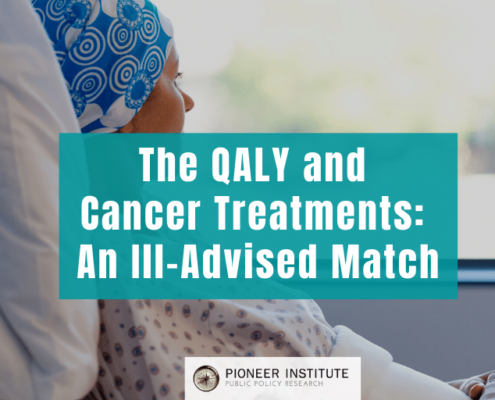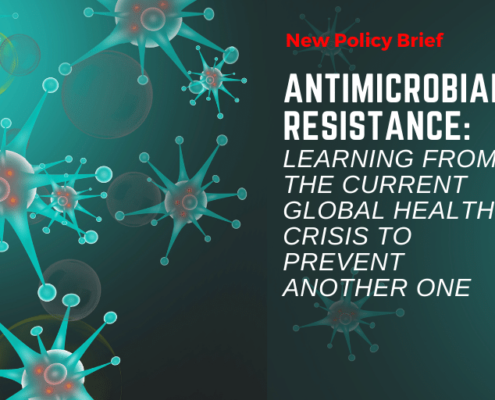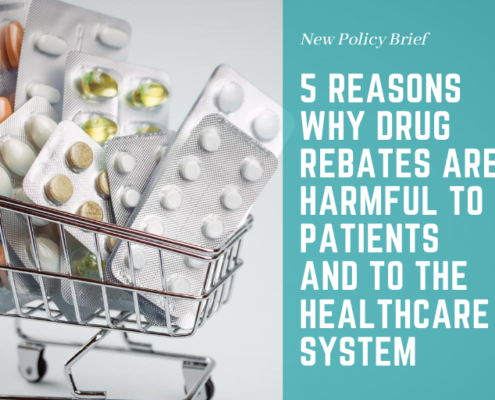The Promise and Challenges of Rare Cancer Treatments
/in Blog: Healthcare, Featured, Healthcare, Press Releases: Life Sciences /by Editorial Staff Share on Facebook
Share on Twitter
Share on
LinkedIn
+
Dr. William Smith, Pioneer Institute’s Visiting Fellow in Life Sciences, spoke about the challenges and opportunities for rare cancer treatments, and concerns about cost effectiveness tools such as the Quality Adjusted Life Year (QALY), in a video interview produced by Rare Cancers, a patient group based in Australia, for the November 26th Can Forum.
Watch the video below:
Get Updates On Our Life Sciences Work!
Related Content:

Study: Decline in Cardiovascular Health Screenings During COVID-19 Pandemic Poses New Public Health Threat
Pioneer Institute today released a new analysis focused on cardiovascular disease, An “Impending Tsunami” in Mortality from Traditional Diseases?, that examines how the COVID-19 pandemic has created another unrelated public health crisis. The Pioneer analysis examines how a single-minded public health focus on COVID-19, social distancing, and lockdowns drove reductions in screenings, diagnoses, and early treatment for complex conditions such as heart disease.

A Modest Proposal to Raise Federal Revenue
As a way to tackle drug prices, President Joe Biden recently announced that he supports the so-called “inflation rebate,” which would require drug companies to give the federal government any revenue from Medicare drug prices above the general rate of inflation. Senate Finance Committee Chairman Ron Wyden and House Speaker Nancy Pelosi have also publicly endorsed the inflation rebate.

New Analysis: ICER Framework Ignores Patient Preferences, Innovation & Societal Benefits in Evaluating Cost-Effectiveness of New Cancer Treatments
Pioneer Institute today released a new analysis, The QALY and Cancer Treatments: An Ill-Advised Match, that examines the alarming methodological and contextual shortcomings of the Quality Adjusted Life Years (QALY)-based methodology in evaluating new cancer therapies. The Pioneer Institute analysis reveals five specific problems with ICER’s evaluation of cancer treatments and demonstrates the urgent need to prohibit the use of the QALY amid trends in rapid cancer innovations and personalized medicine.

ICER Proves Its Lack of Business Acumen, Again
A recent Institute for Clinical and Economic Review (ICER) “Report on Unsupported Price Increases,” concluded that: “Among the top drugs with price increases in 2019…ICER determined that seven of 10 lacked adequate new evidence to demonstrate a substantial clinical benefit that was not yet previously known.” The impression left by the report is that drug companies arbitrarily raise prices without good reason. As with so many ICER products, the study is misleading and demonstrates a profound lack of business acumen.

Study: Growth of Antibiotic-Resistant Infections Could Have Massive Human, Financial Costs
The world was blindsided by COVID-19, but a new Pioneer Institute study finds that even as we continue to wrestle with the pandemic, another threat looms that scientists have long known about but the nation has thus far failed to address: the growth of antibiotic-resistant infections.
“Market dysfunction and perverse Medicare reimbursement rates have led to a growth in infections that resist antibiotics,” said Gunnar Esiason, author of “Antimicrobial Resistance: Learning from the current global health crisis to prevent another one.” If we don’t solve this problem, the human and economic costs are likely to be astronomical.”

Study: Growing Drug Rebates Hurt Both Consumers and Healthcare System
Ever-larger rebates are distorting the market for branded drugs and producing outcomes that often benefit neither consumers nor the healthcare system, according to a new study published by Pioneer Institute.

Study Finds Pandemic Likely to Negatively Impact Biopharmaceutical Sector
Contrary to conventional wisdom that says the coronavirus pandemic will generally benefit biopharmaceutical companies, a new Pioneer Institute study finds many companies will emerge from the pandemic commercially weaker, dealing with delays in new product launches and with fewer resources to invest in research and development.

New Report: Quality Adjusted Life Years (QALY) Methodology Discriminates Against Older Americans, Threatens to Deny Seniors Access to Life-Saving Care
New report asserts that with older americans more vulnerable during the COVID-19 pandemic, all health plans should avoid using the QALY methodology when assessing the value of care for older patients



